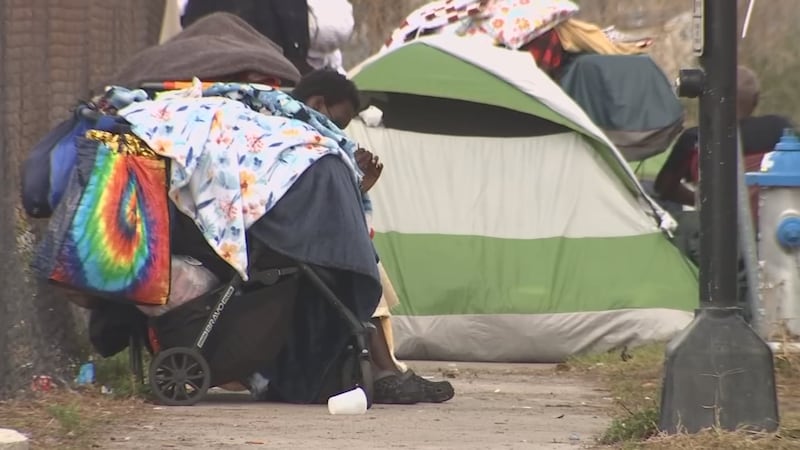ORLANDO, Fla. — A law now gives residents the power to sue their local government for letting people sleep on the street or in public.
▶ WATCH CHANNEL 9 EYEWITNESS NEWS
Governor Ron DeSantis signed the law in March 2024, but as of January 1st, any resident, business owner, or the Attorney General can sue local municipalities for failing to enforce the law and allowing people to camp or sleep on public property.
Across the City of Orlando, it’s not unusual to find those with nowhere else to go seeking refuge under underpasses, on the streets, or in parks, but if that continues it could open both the city and county to legal action.
Read: 1st meteor shower of 2025, the Quadrantids, is expected to peak tonight: How to watch
“Since it’s illegal for you to camp on someone’s private property and now it’s illegal for you to camp on public property, there’s literally nowhere for you to go,” said Eric Gray, CEO of the Christian Service Center.
According to the City of Orlando, in January 2024, there were 759 unsheltered persons in Orange County, with just over half located in downtown Orlando, a 24% increase since 2023.
Amid the surge, Gray is one of many who have advocated for regional investment in an open access shelter.
Read: ‘It hits fast’: Highly contagious stomach bug cases are surging in Central Florida
“We know that there are at least 3 to 4 times more people experiencing homelessness on any given night than are existing shelter beds in the community,” said Gray.
Both the City of Orlando and Orange County have stated they are actively pursuing an open access shelter, but the need is growing.
According to the latest data, Orange County alone is more than 900 shelter beds short.
Thursday evening, Channel 9 crews watched as some of Orlando’s unsheltered population gathered underneath an I-4 underpass, which, according to HB 1365, could lead to a lawsuit.
Read: Your air fryer may be spying on you
In a statement, The City of Orlando told Channel 9, “The City of Orlando uses a services-first approach and engages the HOPE team, Ambassadors and OPD’s Homeless Intervention Unit with individuals by providing information about services and shelter available in our community before any enforcement action is taken.”
The city said it invests more than $4 million annually in services for the homeless, has dedicated more than $58 million in federal funds to address affordable housing and homelessness, and has set a goal of reducing the number of unsheltered people by 50 percent by 2027.
Meanwhile, Orlando Police told Channel 9, “In 2025, OPD officers will continue to proactively patrol and respond to calls from residents and businesses to keep everyone in the city safe.”
Read: Friday & Saturday: Cold-weather shelter will open in Flagler County
According to OPD, since the law was signed, they created a Homeless Intervention Unit, a specialized team of officers who respond to calls about encampments and actively patrol the city.
Orlando Police said since the unit was created, less than 2 percent of their interactions have resulted in arrest, with the majority of those arrested charged because of illegal drugs, open containers, or warrants.
“All of our officers work with community partners to connect unsheltered residents to homeless services and resources while complying with the law.”
— Spokesperson for Orlando Police Department
According to the law, the earliest lawsuits could realistically be filed is January 6th.
A provision of the law requires plaintiffs to give local governments 5-days to cure a violation.
Experts told Channel 9 this is uncharted territory, according to Gray Florida is only the 4th state in the country to enact a law banning public camping.
Click here to download our free news, weather and smart TV apps. And click here to stream Channel 9 Eyewitness News live.
©2025 Cox Media Group






